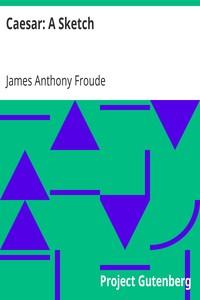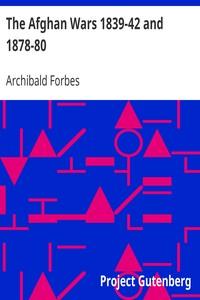Read this ebook for free! No credit card needed, absolutely nothing to pay.
Words: 90581 in 19 pages
This is an ebook sharing website. You can read the uploaded ebooks for free here. No credit cards needed, nothing to pay. If you want to own a digital copy of the ebook, or want to read offline with your favorite ebook-reader, then you can choose to buy and download the ebook.
CHAP.
PLAN OF CABUL, THE CANTONMENT
PORTRAIT OF SIR GEORGE POLLOCK
PORTRAIT OF SIR LOUIS CAVAGNARI AND SIRDARS
PLAN OF CABUL SHOWING THE ACTIONS, DEC. 11-14
PLAN OF ACTION, AHMED KHEL
PORTRAIT OF THE AMEER ABDURRAHMAN
PLAN OF THE ACTION OF MAIWAND
PLAN OF THE ACTION OF CANDAHAR
THE AFGHAN WARS
Futteh Ali, the old Shah of Persia, died in 1834, and was succeeded by his grandson Prince Mahomed Meerza, a young man who inherited much of the ambition of his gallant father Abbas Meerza. His especial aspiration, industriously stimulated by his Russian advisers, urged him to the enterprise of conquering the independent principality of Herat, on the western border of Afghanistan. Herat was the only remnant of Afghan territory that still remained to a member of the legitimate royal house. Its ruler was Shah Kamran, son of that Mahmoud Shah who, after ousting his brother Shah Soojah from the throne of Cabul, had himself been driven from that elevation, and had retired to the minor principality of Herat. The young Shah of Persia was not destitute of justification for his designs on Herat. That this was so was frankly admitted by Mr Ellis, the British envoy to his Court, who wrote to his Government that the Shah had fair claim to the sovereignty of Afghanistan as far as Ghuznee, and that Kamran's conduct in occupying part of the Persian province of Seistan had given the Shah 'a full justification for commencing hostilities against Herat.'
The serious phase of the situation for England and India was that Russian influence was behind Persia in this hostile action against Herat. Mr Ellis pointed out that in the then existing state of relations between Persia and Russia, the progress of the former in Afghanistan was tantamount to the advancement of the latter. But unfortunately there remained valid an article in the treaty of 1814 to the effect that, in case of war between the Afghans and the Persians, the English Government should not interfere with either party unless when called on by both to mediate. In vain did Ellis and his successor M'Neill remonstrate with the Persian monarch against the Herat expedition. An appeal to St Petersburg, on the part of Great Britain, produced merely an evasive reply. How diplomatic disquietude had become intensified may be inferred from this, that whereas in April 1836 Ellis wrote of Persia as a Russian first parallel of attack against India, Lord Auckland, then Governor-General of India, directed M'Neill, in the early part of 1837, to urge the Shah to abandon his enterprise, on the ground that he 'must view with umbrage and displeasure schemes of interference and conquest on our western frontier.'
Free books android app tbrJar TBR JAR Read Free books online gutenberg
More posts by @FreeBooks

: Poems of Paul Verlaine by Verlaine Paul McCarter Henry Illustrator Brownell Gertrude Hall Translator - French poetry Translations into English









